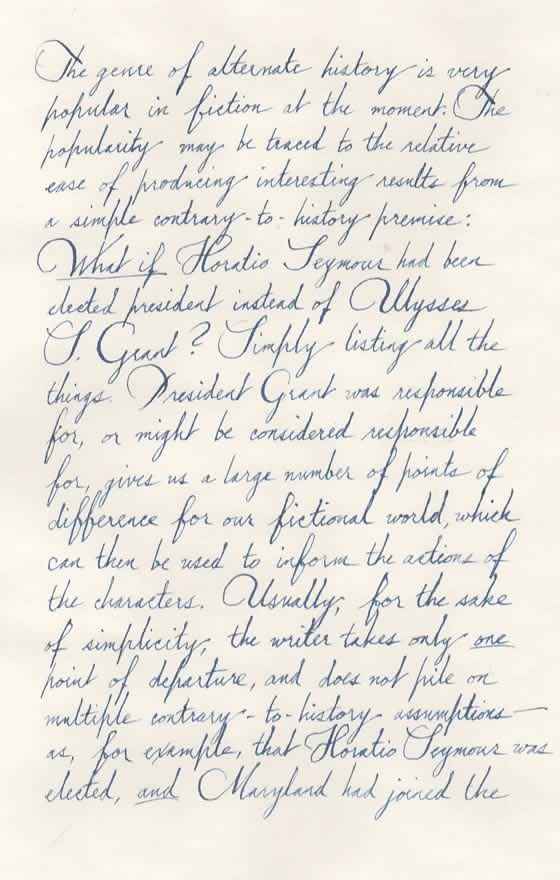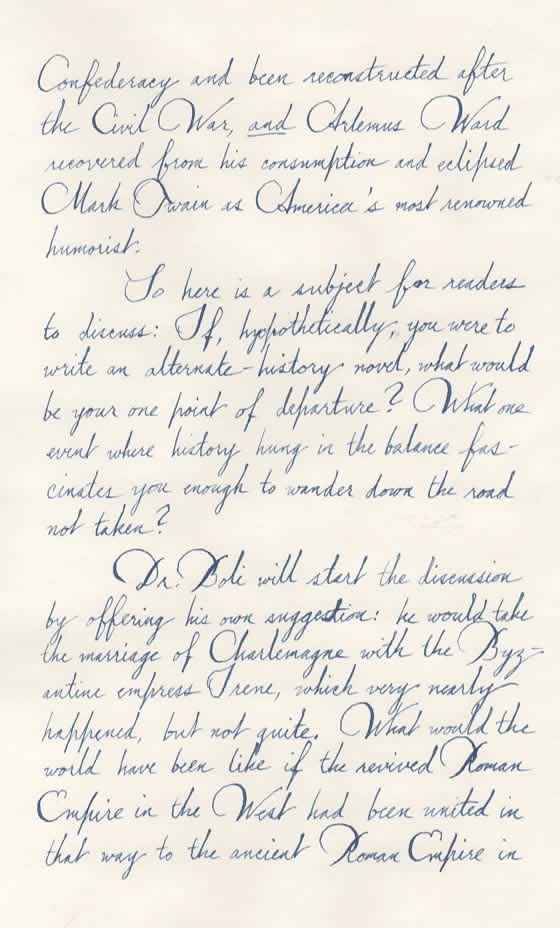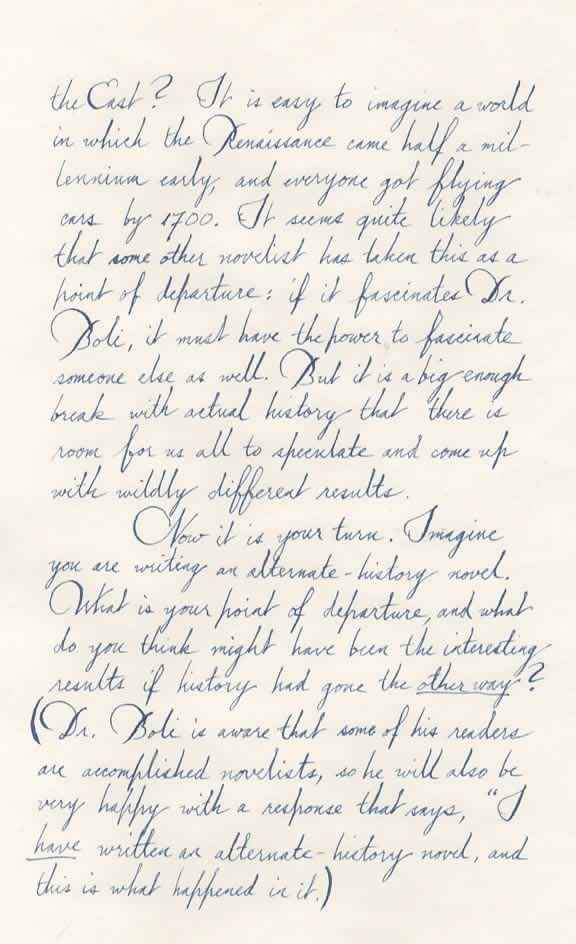March is International Steel Pen Appreciation Month, in honor of which Dr. Boli has hurriedly scribbled today’s essay with an Esterbrook 048 Falcon.
The text is printed below.
The genre of alternate history is very popular in fiction at the moment. The popularity may be traced to the relative ease of producing interesting results from a simple contrary-to-history premise: What if Horatio Seymour had been elected president instead of Ulysses S. Grant? Simply listing all the things President Grant was responsible for, or might be considered responsible for, gives us a large number of points of difference for our fictional world, which can then be used to inform the actions of the characters. Usually, for the sake of simplicity, the writer takes only one point of departure, and does not pile on multiple contrary-to-history assumptions—as, for example, that Horatio Seymour was elected, and Maryland had joined the Confederacy and been reconstructed after the Civil War, and Artemus Ward recovered from his consumption and eclipsed Mark Twain as America’s most renowned humorist.
So here is a subject for readers to discuss: If, hypothetically, you were to write an alternate-history novel, what would be your one point of departure? What one event where history hung in the balance fascinates you enough to wander down the road not taken?
Dr. Boli will start the discussion by offering his own suggestion: he would take the marriage of Charlemagne with the Byzantine Empress Irene, which very nearly happened, but not quite. What would the world have been like if the revived Roman Empire in the West had been united in that way to the ancient Roman Empire in the East? It is easy to imagine a world in which the Renaissance came half a millennium early and everyone got flying cars by 1700. It seems quite likely that some other novelist has taken this as a point of departure: if it fascinates Dr. Boli, it must have the power to fascinate someone else as well. But it is a big enough break with actual history that there is room for us all to speculate and come up with wildly different results.
Now it is your turn. Imagine you are writing an alternate-history novel. What is your point of departure, and what do you think might have been the interesting results if history had gone the other way? (Dr. Boli is aware that some of his readers are accomplished novelists, so he will also be very happy with a response that says “I have written an alternate-history novel, and this is what happened in it.”)


